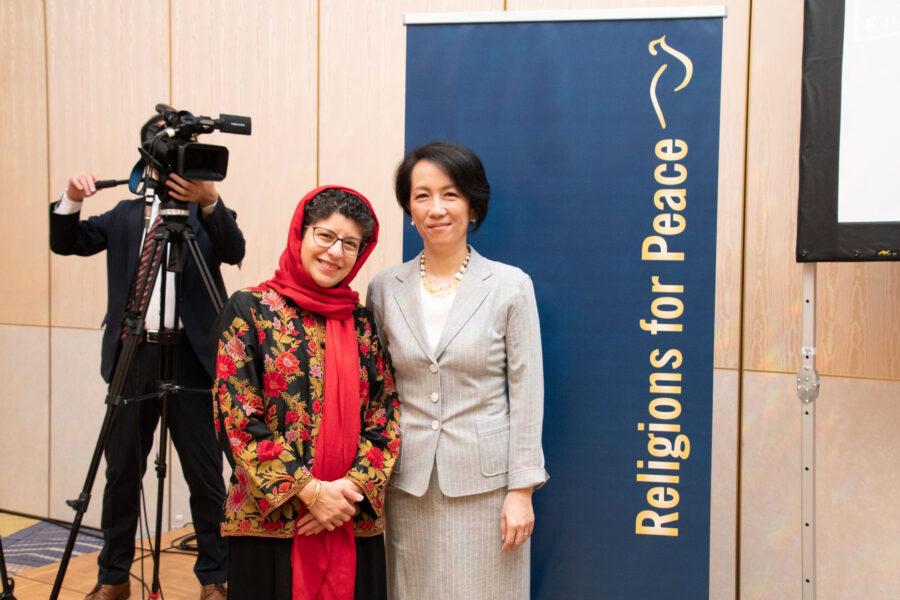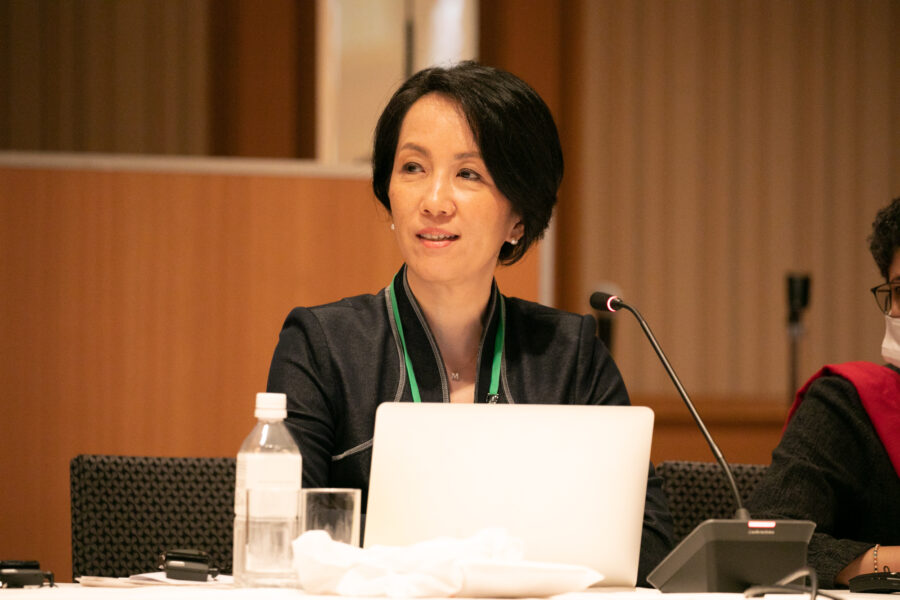Women of the Tokyo Peace Roundtable, an Interview Series Featuring Rev. Kosho Niwano
Women of the Tokyo Peace Roundtable: Rev. Kosho Niwano, Co-Moderator of Religions for Peace and President-Designate of Rissho Kosei-kai
Q: Can you provide a background to what the Tokyo Peace Roundtable is, what were your expectations, and were those expectations met?
Rev. Niwano: We needed to have a peace roundtable in which multireligious leaders and secular policymakers, who had served their communities in both wartime and peacetime, could meet together in one place and talk to each other on equal terms. As such, we thought it necessary that through the dialogue at this Roundtable, we exchange practical narratives of building social cohesion and diverse reconciliation efforts, based on different conflict settings, and then assess how to emerge into a post-conflict reality.
Of course, while our objectives were not completely met, we transcended our individual circumstances and listened earnestly to what each other had to say. No voice was excluded and no one got up and left. We came to know each other’s sufferings and we heard the unspeakable cries and pain in each other’s hearts. Even when that suffering was too much to accept in its entirety, we continued being together. The unity at this Roundtable is the manifestation of our belief that “Peace is not a target, but a journey.”
Even if the road ahead of us seems endless, I believe that thanks to this Roundtable, we were able to take the first step forward on this journey. In that sense, I think the Roundtable met our expectations.
On the other hand, when I think about the people whose dignity and lives are threatened even now, how could I ever say that we did enough?

Q: After hearing what everyone has said over the past three days, what were your key takeaways?
Rev. Niwano: There are three things I would like to touch upon.
First, religion has to go on being religion. Of course, we must continue to strategically and practically advance processes of reconciliation and discussion with public policy makers. That said, there is still the greatest value in we people of faith, who feel and believe in God’s love and the Buddha’s compassion, continuing to make proposals and promote activities that are faith-centered.
Second, at this Roundtable, I was keenly aware of the importance of the roles being played by women of faith. And while there is a famous book called, The Unwomanly Face of War, I was struck by how few female religious leaders participated in this Roundtable. Women are playing extremely important roles in the practice of religion and the practice of reconciliation. And yet we can still say that women’s roles in religious hierarchies are much too limited.
So, we may need to rethink the very framework of religious hierarchies.
And third, I think it will be meaningful to continue a platform like this Roundtable. I don’t know what form it will take, but I certainly hope it will continue.

Photos courtesy of Rissho Kosei-kai